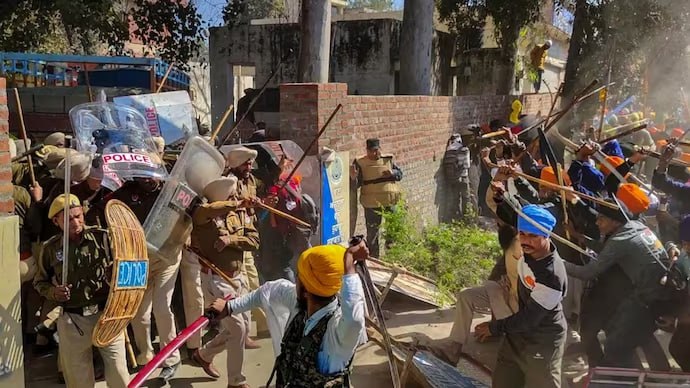Trouble in Punjab: on the factors of religious fanaticism , foreign-aided opportunism and a societal crisis
The governments at the Centre and in the State must guard against separatism
The police action against violent separatists in Punjab is a case of better late than never. Religious fanaticism in the State has been raising its ugly head in recent years, and going out of control in recent months, with open calls-for violence and threats to state functionaries including Union Ministers. On February 23, a mob overran a police station and freed suspects , which was a complete breakdown of law and order. The challenge appears to be daunting for the inexperienced Aam Aadmi Party government, and the situation needs more visible coordination and action by the Centre and the State. The violent campaign in the 1980s for a separate Khalistan, supported by Pakistan, had pulverised the State and claimed the lives of a sitting Prime Minister and thousands of innocents in a genocidal outrage targeting the Sikh community. That trauma should not be allowed to return and torment the community or India. Sikhs are a highly mobile and enterprising community, now spread around the world, but economic and social stagnation is taking its toll. Agriculture is facing a crisis, and drug-abuse is rampant . Trouble-makers are smelling an opportunity to incite violence.
A wound that is allowed to fester will sicken the whole body. The looming trouble in Punjab is being inflamed by a mix of religious fanaticism, foreign-aided opportunism, and a societal crisis. The mobilisation of a section of the Sikh diaspora in the United Kingdom, Canada and Australia for the cause of separatism is also a worrying sign for India. The Centre has to work with Punjab and foreign governments to contain this malaise . Violent tendencies must be nipped in the bud and proponents of hate must pay a price . Also, there has to be a conscious effort to communicate with the Sikh community at-large to isolate the toxic elements. To the world and to citizens, the message must be clear that India remains a multireligious and multicultural nation that does not tolerate or require separatism. A lack of trust between the farmers of Punjab and the Centre had derailed the agriculture laws that sought to reform the sector in 2021. A combination of strict force against violent elements and trust-building with the general public should be at the heart of the rhetoric and policy of the government. At any-rate , no rhetoric from any quarter should be encouraged that causes more alienation .
